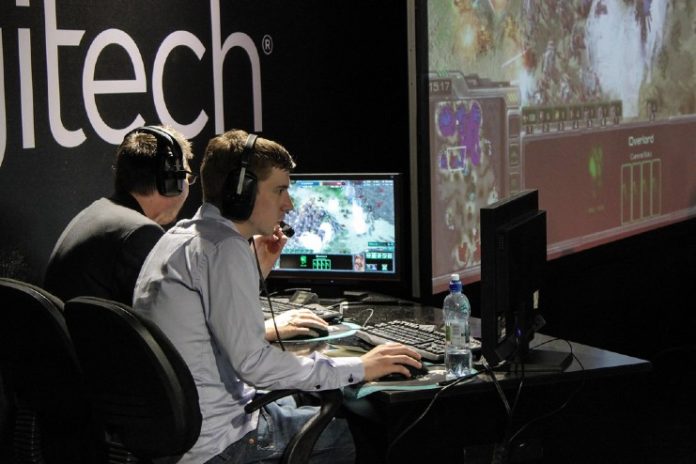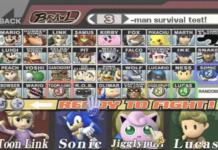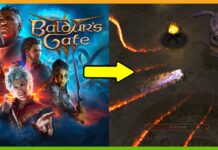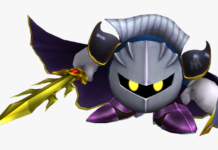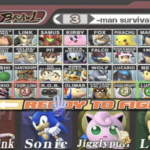Commentary in esports can often be a very thankless job; the pay isn’t great (if there even is any pay at all) and good commentary can go unnoticed while bad commentary is relentlessly lambasted. There’s very limited opportunities at the highest levels of esports casting, making the climb to the top very difficult.
If you want to get into commentary, it’s really about how much you love doing it.
John Eberhart, known as “Zambo” in the competitive scene, is a Super Smash Bros. Ultimate player and esports event coordinator from Buffalo, New York, and he got into casting for just that reason. He originally wanted to be a sports commentator and when he joined the competitive Smash scene in 2016, it wasn’t long before he tried his hand at esports commentary.
“It was a little bit of a shock to me how difficult it was. I thought it would be a lot easier.” Zambo told ggn00b in an interview. “It was the first time I actually had to think about what I said.”

Luckily for Zambo, his experience with recreational sports commentary and doing the morning announcements at school made him more comfortable on the mic than most beginner commentators. He has since made a name for himself in the New York and Greater Toronto Area regions. He’s done commentary for several large tournaments in these regions, most notably the Get On My Level and EGLX series, often partnered with Omar “Meez” Williams to become one of the more well-known commentary duos in the area.
There are several struggles with esports casting that make it a different beast from traditional sports casting. The pauses that come about from sports such as baseball and football just don’t exist in most esports games.
“[In these sports] there’s a lot of build up between plays, so you have time to set the stage. In a game like Smash, you almost have to do this as you go. Instead of seeing several tiny moments, you have to try and see it as one big moment” Zambo says in regards to commentating.
To the layman, match commentary may just seem like a couple people talking about the game on the screen, with some terminology thrown around here and there. But the most effective casters are able to make a more engaging experience for all spectators by telling the story of a match. In short: giving viewers a reason why they should care.
“When I start casting a set, there’s a couple things I think about; for example one of the things I love about regular sports is the storylines. So I tie this in to when I ask myself ‘why should they care?’” Zambo says about his process. “It can be as simple as ‘the winner of this set moves to the next day’ or ‘X player has never beaten Y player before.’”
“It’s important to let people know why something is hype, whether it’s a quick sentence at the beginning of a set or if the crowd is behind it, you can relay how it feels to be at the event.”
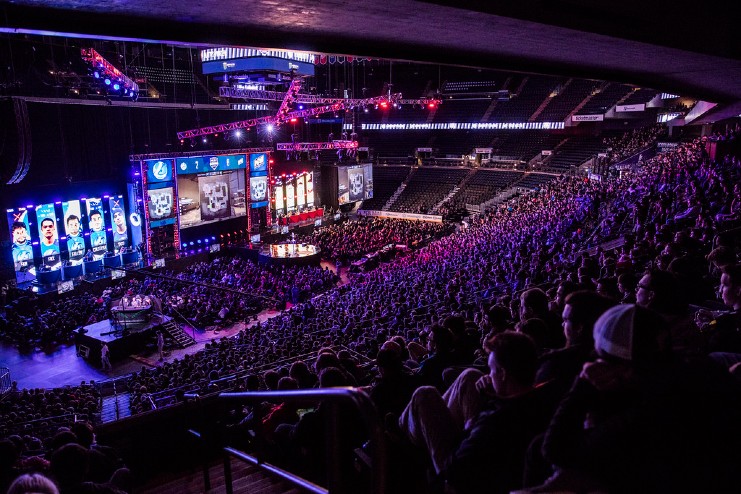
There’s also the varying styles among commentators per esports title; in Smash, someone like TKBreezy will be different from someone like Max Ketchum. With all the top casters being equally regarded as professionals, it becomes a subjective matter of taste. While many esports games prefer the more “formal” approach to commentary, Zambo’s style is more in-line with the grassroots vibe of the fighting game community.
“Something I’ve always made sure that I do is I’ve never tried to change my personality or who I am for casting.”
Zambo’s approach to commentary is a more relaxed approach, involving good chemistry with a co-caster, being able to crack jokes at the right times, and creating a wholesome, chill environment akin to friends hanging out on the couch.
This style of commentary has a place in the hearts of Smash players; the famous Wombo Combo is famous for the many hilarious and outlandish things the commentators scream into the microphone. The laid back charm of HomeMadeWaffles and Phil casting the Melee finals of the earlier Genesis events helped shape the image of the Melee scene in that regard.
Finding a style that’s true to you is crucial to making the most out of commentary opportunities. Zambo acknowledges that a career as an esports commentator is incredibly difficult, involving a lot of networking on top of the work put in and the talent required. But that work can pay off in other ways, whether it sets the stage for a career in streaming, or in the case of Meez, getting hired to host and produce content for the fighting game community.
And with Zambo working as an esports event coordinator for the Buffalo Smash scene on top of doing casting, he’s putting in the work to set himself up for bigger opportunities down the road. Above all, the journey that’s come from doing commentary is worth it.
“Even if you’re not getting paid, the experiences that come along the way are extremely valuable.”
Be sure to follow Zambo on Twitter, as well as his local scene 716 Smash!


